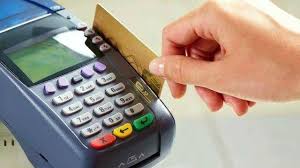Government to bear MDR charges on transactions up to Rs.2000
The Union Cabinet has decided that Government will borne Merchant Discount Rate (MDR) charges on transactions up to Rs. 2,000 made through debit cards, BHIM UPI or Aadhaar-enabled payment systems (AePS) to promote digital transactions. It will be for two years with effect from 1 January, 2018 by reimbursing the same to the banks.
Cost structure of such transactions
A Committee will look into industry cost structure of such transactions which will form basis to determine levels of reimbursement. It will comprise of Secretary Department of Financial Services, Secretary Ministry of Electronics & IT (MeITY) and CEO, National Payment Corporation of India (NPCI). The move will have an impact of Rs 2,512 crore (Rs.1,050 crore in FY 2018-19 and Rs.1,462 crore in FY 2019-20) on the exchequer.
Significance
As a result of this approval, consumer and merchant will not suffer any additional burden in form of MDR thereby leading to greater adoption of digital payment modes for such transactions. It will help to move towards less cash economy, since such transactions account for sizeable percentage of transaction volume.
What is Merchant Discount Rate (MDR)?
MDR is charge or fee imposed on merchant by bank for accepting payment from their customers in credit and debit cards every time card is used for payments (like swiping) in their stores. MDR charges are usually shared in pre-agreed proportion between them and are expressed in percentage of transaction amount.
MDR compensates bank issuing card, bank which puts up swiping machine (Point-of-Sale or PoS terminal) and network providers such as Mastercard or Visa for their services. In India, the RBI specifies maximum MDR charges that can be levied on every card transaction.
According to recent RBI notification, from January 1 2018, small merchants (turnover upto Rs.20 lakh) will pay a maximum MDR of 0.40% of bill value and larger merchants (turnover greater than Rs.20 lakh) will shell out 0.90%. RBI has also set monetary cap at Rs.200 per bill for small merchants and Rs.1,000 for large ones. As per RBI rules, merchant has to pay MDR out of his own pocket and cannot pass it on to the customer.
Month: Current Affairs - December, 2017


